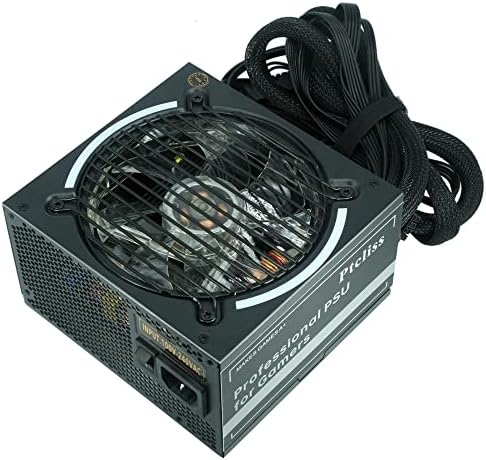Building a high-performance gaming PC involves more than just choosing a powerful GPU and fast processor. One of the most crucial components often overlooked is the power supply unit. In fact, choosing the best power supply for gaming PC ensures your components receive clean, consistent power and protects your system from unexpected shutdowns or damage due to power fluctuations. As hardware demands grow and energy standards evolve, selecting the right PSU in 2025 requires a careful balance of wattage, efficiency, build quality, and future-proofing.
Understanding Wattage Requirements
Power supplies are typically rated in watts, which refers to how much power they can deliver to your system. While entry-level or mid-range gaming PCs might require as little as 500 to 600 watts, high-end systems equipped with the latest graphics cards and overclocked CPUs may demand anywhere from 750 to 1000 watts. It’s essential to calculate your power requirements based on your build to avoid underpowering your system, which can lead to instability, crashes, or even component failure. Equally, an excessively overpowered PSU can lead to inefficiency and wasted energy.
Efficiency Ratings Matter
PSU efficiency affects how much power from the wall gets converted into usable energy for your PC. The industry uses the 80 Plus certification standard to measure this efficiency. Power supplies certified as Bronze, Silver, Gold, Platinum, or Titanium indicate increasing levels of efficiency. For gaming systems, a Gold-rated power supply often provides the best balance between cost and performance. It ensures that your components receive stable power while keeping electricity bills in check. More efficient power supplies also tend to generate less heat and noise, contributing to a quieter, cooler system.
Modular vs Non-Modular Power Supplies
Power supplies come in modular, semi-modular, or non-modular formats. A modular PSU allows you to attach only the cables you need, helping with better airflow and easier cable management. Semi-modular PSUs come with some fixed cables but still offer flexibility for others. Non-modular units, while cheaper, can create cable clutter and are harder to install in tight cases. For gamers building clean, aesthetically pleasing setups, a modular design is often worth the small additional cost.
Future-Proofing Your Build
As technology evolves, new power standards and connectors are introduced. The latest graphics cards and motherboards support features that may require updated power delivery specifications. Choosing a PSU that complies with the latest ATX and PCIe standards ensures compatibility with future components. Some new GPUs, for example, now use a 12VHPWR connector for power delivery, and having a PSU that natively supports this can simplify future upgrades and reduce the need for adapters.
Cooling and Noise Levels
Gaming PCs generate a lot of heat, especially under load. A power supply with a reliable and quiet fan can help maintain thermal balance within the case. Look for PSUs with intelligent fan control or zero RPM modes that only activate the fan under high loads. These features reduce overall noise during idle or light use, contributing to a more enjoyable gaming experience. In addition, higher-quality fans and better airflow design extend the PSU’s life and reduce the risk of overheating.
Build Quality and Safety Features
Premium power supplies come with better internal components like Japanese capacitors, higher-grade transformers, and quality soldering. These elements contribute to greater durability and reliability over time. Look for PSUs that offer multiple safety features such as overvoltage protection, short circuit protection, and overcurrent protection. These built-in protections act as insurance for your expensive gaming hardware. Also, consider brands that offer longer warranties, which typically indicate higher trust in product longevity.
Brand Reputation and User Trust
Not all PSU brands are created equal. Established manufacturers often invest more in quality assurance, testing, and support. Brands like Cooler Master, Corsair, EVGA, Seasonic, and Be Quiet! have earned positive reputations over the years for delivering reliable products. Choosing a well-reviewed, trusted brand can prevent future headaches and provide peace of mind. Many serious gamers prefer to stick with brands that offer ten-year warranties and have a solid track record in power supply manufacturing.
Cable Quality and Aesthetics
Gamers often spend considerable time on their PC’s appearance. A high-quality PSU with individually sleeved cables or blacked-out cables can enhance the visual appeal of a build. Cheap power supplies often come with multi-colored wires that can clash with the rest of the setup. Better cable quality also ensures durability and flexibility during installation, especially in tighter cases or when routing behind the motherboard tray.
Compatibility with Modern GPUs
Modern GPUs require multiple power connectors and stable voltage delivery. Power supplies must meet these needs without introducing electrical noise or risking power drops. If you’re building a system with a powerful graphics card like the latest RTX or Radeon series, you’ll want a PSU that provides adequate 12V rail amperage and can handle peak power draws without fluctuation. This ensures that your graphics card performs consistently under heavy gaming loads.
Warranty and After-Sales Support
A quality PSU should come with at least five years of warranty, though premium models may offer seven to ten years. This reflects the manufacturer’s confidence in its product. Reliable customer support is equally essential. If you experience issues, responsive support and easy return processes can make a significant difference. Always check warranty terms and support reputation before buying a power supply.
When to Upgrade Your PSU
If you’re upgrading to a new graphics card or CPU, your old PSU might no longer be adequate. Watch for signs like random shutdowns, system instability, or unexpected restarts under load. These may indicate your current PSU can’t handle your hardware demands. Additionally, if your PSU is over five years old and you’re planning a major upgrade, replacing it is a smart precaution, even if it’s still technically functional.
Where to Find Reliable Power Supplies in the UK
In the UK market, multiple retailers offer power supplies that meet gaming performance standards. Look for platforms that provide detailed technical specifications, customer reviews, and solid return policies. This will help ensure you get the right PSU that fits both your budget and your gaming ambitions. Whether shopping for a new build or upgrading your existing system, take the time to choose a product that aligns with your current needs and allows room to grow.
Final Thoughts
Selecting the best power supply for gaming PC involves more than just picking the highest wattage unit within your budget. It requires thoughtful evaluation of efficiency ratings, build quality, compatibility, and future-proofing potential. With the right PSU in place, you ensure stable power delivery, quiet operation, and long-term reliability. Whether you’re assembling a compact build or a full-sized beast, the power supply remains the core that holds your system together and keeps every component running at its best.


